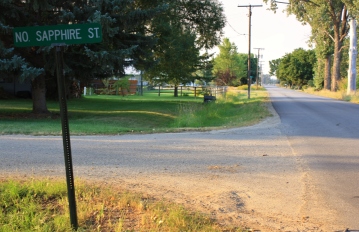It’s not gobbledygook. It’s just German. The word Alltagsgeschichte translates into “everyday history,” and refers to a method of historical research connecting everyday citizens or communities with major political or social changes. It’s a way of examining history from a bottom-up perspective by studying the lives of voters rather than presidents and peasants rather than monarchs.
This method of study was developed by German historians after the Second World War, and ideally fits well with Marxist theory by emphasizing workers and farmers. Although it is still a relatively recent notion, I think that everyday history is a useful way of understanding a plethora of historical events. It can be applied to populist movements in Latin America, the effects of globalization in western Africa, and women’s rights in Afghanistan through the past century’s regime changes.
Everyday historians can use social media to understand recent events, such as how the protests in Tahrir Square unfolded from the vantage point of the protestors themselves. When women wrote fan letters to Shirley Jackson in the 1940s about how much they enjoyed writing on their own, they produced a collection of documents that enables historians to understand day-to-day life among housewives during that time; through these letters, historians can see that Betty Friedan’s assessment of middle-class women in The Feminine Mystique was accurate two decades prior to its publication. Love letters between soldiers and their spouses give historians access to everyday life on both the battlefield and the home front.
I am drawn to this method of research because I find hope in it. There is something comforting in the thought that the average citizen can exert influence over the state. When I feel that my vote is thrown away, or that my day-to-day life is a waste of time and energy, I can reassure myself that the average person with a pen, a phone, or an instrument has the potential to make a difference, and that the little things, correspondences and recordings and photographs, will up make the bulk of historical documentation long after we are gone. The next great revolution will be the product of our tiniest actions, our minute protests, one by one building up until power has to shift. Everyday life does not impede us. I think, in fact, it empowers us.


This is awesome, Keene. I think you’re really on to something. If everyday people can see their part in historical events, then they have power they might not otherwise see. History shows us conquerers and kings, popes and generals and offers little in the way of primary documents created by people outside of the ruling classes. I think this point of view will fundamentally shift the way history is recorded and understood thanks to technology that puts the power of authorship in the hands of billions of people. It is sad, though, that it doesn’t work in reverse. We will never truly know about the lives of the everyday 10th century European peasant farmer who could not read or write; nor see into the inner workings of societies with no formal written records. Knowledge really is power and the spread of literacy — the ability to record one’s own existence for posterity — could prove to be the most empowering development of our times.
LikeLike
Thanks! I do wish more people could see that they have more power than they think they have. Perhaps those who recognize that power can help show them the light, so to speak.
LikeLike
I needed this today. A reminder that everything I do counts for something, no matter how small.
LikeLike
Yay! I made a difference! I think that warrants me a Nobel Prize of some kind.
LikeLike